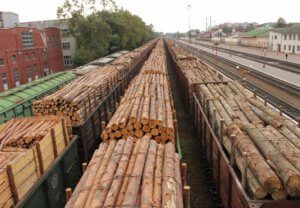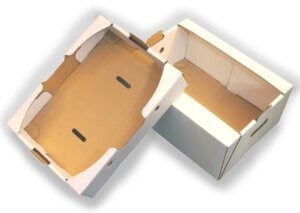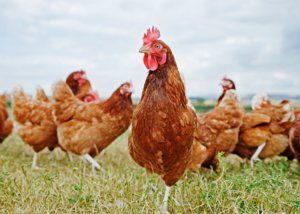
The European Union has called on Ukraine to lift the moratorium on the export of round timber, as well as introduce administrative and institutional reforms and ensure the functioning of an efficient and transparent administrative system. “The EU encouraged Ukraine to continue fighting vested interests in order to improve the business and investment climate and eliminate swiftly trade irritants, such as the wood export ban,” according to the statement following a meeting of the Council of the Ukraine-EU Association, held in Brussels.
“Particular focus should be on effective and timely implementation of the Deep and Comprehensive Free Trade Area, and to further facilitate trade and eliminate technical barriers to trade, including as regards customs procedures, technical regulations, sanitary and phytosanitary systems as well as food safety reform, public procurement and the protection of intellectual property rights,” the report says.
“The Ukrainian side reaffirmed its commitments to technical regulation reform, notably the need to speed up adoption of sectoral and horizontal legislation, including in the area of market surveillance,” it says.
The EU pointed out that “Ukraine shall comply with all prerequisites set out in the AA/DCFTA including incorporating the relevant EU acquis into its legislation, making the administrative and institutional reforms and providing the efficient, effective and transparent administrative system, which are indispensable prior to starting ACAA [Agreement on Conformity Assessment and Acceptance of Industrial Products] negotiations,” it said.

Kyivsky cardboard paper mill (Obukhiv, Kyiv region), a leader in Ukraine’s pulp and paper industry in terms of production and sales, produced goods worth UAH 5.16 billion in January-November 2018, which was 17.7% up year-over-year. Thus, production growth in January-November 2018 was retained compared to the same period last year, the UkrPapir association said. Corrugated packaging output grew by 8.8%, to 219.9 million square meters, which was the second highest result among producers of corrugated packaging in Ukraine after Rubizhne cardboard packaging mill in Luhansk region (with Trypilsky packaging plant).
Production of cardboard increased 2.9%, to 190,900 tonnes. Production of package cardboard alone grew by 11.4%, to 128,500 tonnes, while box cardboard output fell by 11%, to 62,400 tonnes.
Production of base paper (for sanitary products) stood at 73,500 tonnes, which is 6.4% up. Toilet paper output grew by 5.5%, to 393.8 million rolls.
Corrugated packaging output in total in Ukraine (including other producers) grew by 0.4% January through November 2018, to 879.1 million square meters, that of paper and cardboard increased by 4.3%, to 879,100 tonnes and toilet paper – by 7%, to 590.8 million rolls.
Kyivsky cardboard paper mill is one of the largest cardboard and paper producers in Europe. It employs almost 2,200 people. It sells produce to almost 700 companies in Ukraine, some CIS member states and the rest of the world.

Now new markets for Ukrainian products are opening today, and the compatibility of the poultry exports public supervision system is being assessed, and in 2019-2020 it is expected that markets of 24 states will open, the State Service of Ukraine for Food Safety and Consumers’ Rights Protection has said. According to a report on the website of the authority, over the past two years, 21 countries have opened new markets for Ukrainian poultry products. In particular, the markets of 14 countries were opened for the export of poultry meat and products and the markets of seven countries for the export of eggs and egg products. As reported, in the middle of December 2018, Ukraine and Morocco agreed on a veterinary certificate for the export of Ukrainian egg products, and in November, Ukraine and Tunisia – for the export of Ukrainian poultry meat.